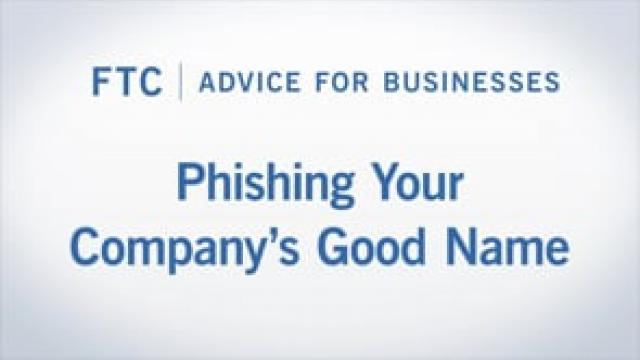Phishing Scams and How to Spot Them
Phishing is a type of online scam that targets consumers by sending them an e-mail that appears to be from a well-known source – an internet service provider, a bank, or a mortgage company, for example. It asks the consumer to provide personal identifying information. Then a scammer uses the information to open new accounts, or invade the consumer’s existing accounts. There are several tips that consumers can follow to avoid phishing scams, such as not responding to e-mails or pop-up messages that ask for personal or financial information.
- New FTC Data Analysis Shows Bank Impersonation is Most-Reported Text Message Scam ( )
- FTC Report to Congress Details Fraud Reports from Older Consumers ( )
- FTC Report Finds Some Small Business Web Hosting Services Could Leave Small Businesses at Risk of Facilitating Phishing Scams ( )
- Online Businesses Could Do More to Protect their Reputations and Prevent Consumers from Phishing Schemes ( )
- FTC Warns Small Businesses: Don't Open Email Falsely Claiming to be From FTC ( )
- FTC: Scammers Hit New Low by Sending Fake “Funeral Notices” ( )
- FTC Tells Consumers to Hang Up on Tech Support Refund Scams ( )
- Tech Support Scheme Participant Settles FTC Charges ( )
- FTC Halts Computer Spying ( )
- Can your staff spot the five most common text message scams?( )
- How readiness can help protect veteran-owned businesses( )
- Business owners: Scams will follow new rescue plan( )
- Business owners: Latest COVID scam is directed at you( )
- The FTC Chairman is not writing to you( )
- Text message package scam delivers more than your business bargained for( )
- Scams and the older consumer: Some surprising findings( )
- National Consumer Protection WeekMarch 2, 2014
- Spam Summit: The Next Generation of Threats and SolutionsJuly 11, 2007
- Protecting Older Consumers 2018-2019: A Report of the Federal Trade Commission ( )
- Roundtable Discussion On Phishing Education: A Staff Report By the Federal Trade Commission’s Division of Consumer and Business Education and Division of Marketing Practices ( )
- Spam Summit: The Next Generation of Threats and Solutions: A Staff Report by the Federal Trade Commission's Division of Marketing Practices ( )

